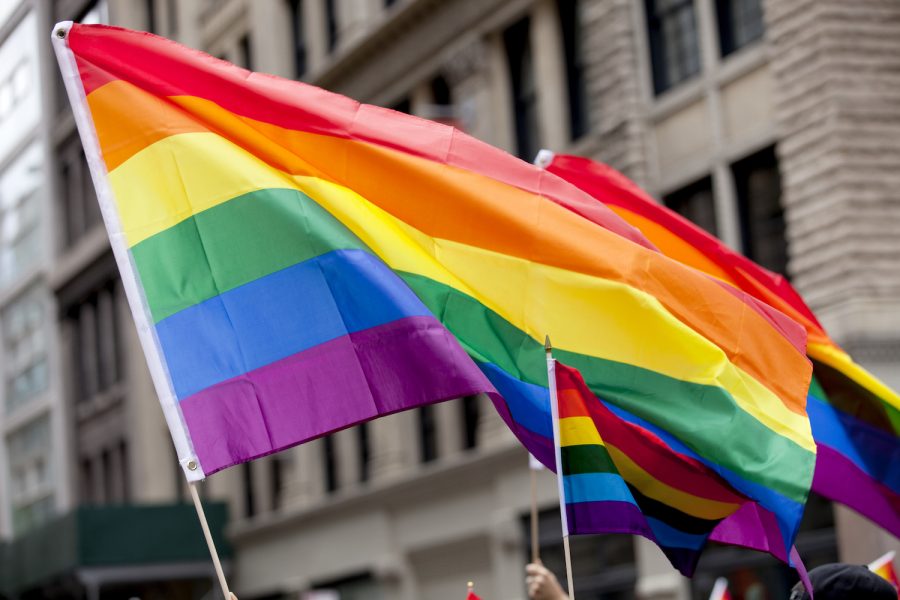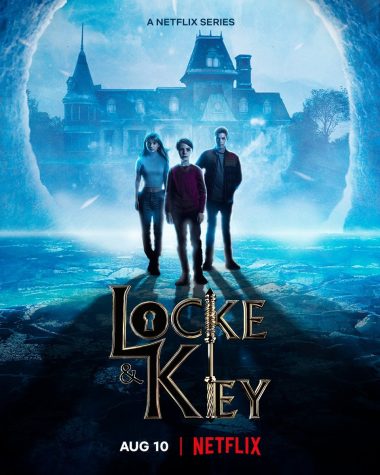A Closer Look into SAGA at Prep
Photo courtesy University of California, Berkeley
“I was put in a box,” was the first thing Mariella Faura ‘23, President of the SAGA club, said when asked about how her personal narrative inspired her to lead the club. “Coming from a middle school where I was pretty much the only queer person, [I] felt suffocat[ed]. I didn’t have anyone else whom I could relate to and I always felt like the odd one out. I felt ‘othered.’” Similarly, Garrett Olmsted ‘22, the new co-president of SAGA, described his experience as a member of the LGBTQ+ community to be primarily isolating. “Throughout my life,” he began. “I was surrounded by people who demeaned gay people and treated my sexuality like it was a joke. It’s really harmful to a person, and the reason I am a very outspoken advocate now is because I think I have a unique perspective, and I don’t want anyone else to go through what I did. I want to be there to make them feel safe and give them a space I didn’t have until I was older.”
Both Faura and Olmsted have made SAGA into a space where students on the LGBTQ+ spectrum can feel safe and comfortable talking about topics that pertain to the community’s experiences. The club has talked about a multitude of topics, including toxic masculinity within the community, the racist roots of homophobia, drag ballroom culture, historical LGBTQ+ events and figures, and current political events such as Amy Coney Barrett’s historic Supreme Court election and its effects on the community. On top of creating a safe space for LGBTQ+ students, they both want SAGA to be a place of learning, where straight allies and students outside the LGBTQ+ community can listen to the perspectives of LGBTQ+ students and learn from them. Olmsted elaborated, “The only way to battle ignorance is through education. I want to educate people who are intolerant of our community.” Faura added that people must be educated on their biases and that she hopes to advertise for the club more in the future in order to help accomplish this goal.
However, Faura and Olmsted want the club to be more than a sanctuary. They also have also made it their mission to utilize the club’s voice in order to create a broader and more inclusive discussion across the school about what it’s like to be LGBTQ+ at Prep. Both of them believe that there are improvements that can be made for the LGBTQ+ student body on campus.
Faura and Olmsted have worked diligently to identify these changes and work with the school. Faura described, “Over the summer, Garrett approached me, and both of us were inspired by the political activism and the creation of a Diversity and Inclusion Committee at Prep. We wanted to advocate for LGBTQ+ people within this narrative. I set up various meetings at Prep with administrators and they were incredibly receptive to our ideas. They were open to our criticism and are currently in the process of evaluating these changes. This openness is something I admire about Prep and our community. As a current member of the DEI committee, I am grateful to be included in the group of people who get to identify improvements and being allowed to be there has made a huge difference in my life.” Faura then went on to explain how the input of other LGBTQ+ Prep students influenced her. She said, “It wasn’t just me. It was all of our voices.”
The way in which Faura and Olmsted helped facilitate these changes was by writing a letter that outlined specific issues affecting the LGBTQ+ community at Prep. Some of the changes they discussed in the letter were degendering prom titles, including pronouns on rosters, including LGBTQ+ sex education and including more queer narratives in the school’s curriculum, particularly English and history classes. Olmsted emphasized the importance of open dialogue, stating that LGBTQ+ narratives need to be discussed alongside racism and sexism. “We are often left out of the conversation,” he said. “At first, I was worried that advocating for our community could take away from other conversations around racial diversity. I was told so by multiple people but this idea only strengthened our cause. These issues affecting minorities… they are all important and intersectional. We want to be included in the discussion. Education is the only way to fight transphobia and homophobia.”
Both Olmsted and Faura also discussed how they want to expand their influence on a larger scale. “My main goal is to increase fundraising and charity aspects of SAGA,” Faura said. “I want to increase our advocacy and get the whole school involved. This has been difficult due to the pandemic but this year, I have managed to help our cause through multiple organizations. Once we return to Prep, I want to work within our school and start having broader discussions about being LGBTQ+ at Prep. I want to expose people to our narratives.”
The two also discussed how overlooked and complex LGBTQ+ issues are across the United States. Currently, The Equality Act protects discrimination on the basis of race, sex, religion and nationality. However, discrimination based upon gender identity and sexual orientation still remains legally valid throughout 28 states in all areas of life, including employment, public services and credit. Only 22 states offer legal protections against LGBTQ+ discrimination in the workplace. The Equality Act, recently passed in the House this February, amends the 1964 Civil Rights Act to include gender identity and sexual orientation as protected classes. Now, it is currently under review in the Senate. Yet, according to BBC, nearly all Senate Republicans believe this bill infringes upon their religious freedom and will not let it pass in the Senate. This stance poses a threat to the safety and rights of millions of people (including LGBTQ+ families).
In order to recognize the ways in which others are being boxed in by walls of bricks, it is important to see how our own prejudices surround us. SAGA hopes to help break down these barriers.

Grade: 12
Years on Staff: 2
Why are you writing for the Flintridge Press?
I am passionate about the events occurring in the world and how they...











